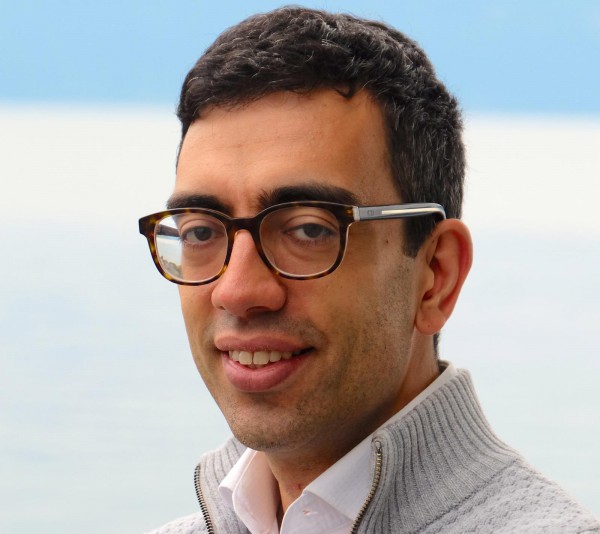Giovanni Pizzi starting new position as Materials Software and Data group leader at PSI
By Carey Sargent, EPFL, NCCR MARVEL
Dr. Giovanni Pizzi, now senior researcher in the group of Nicola Marzari, is starting a new position as leader of the "Materials Software and Data" group of the Laboratory for Materials Simulations at the Paul Scherrer Institut (PSI).
As a tenure-track senior scientist, Pizzi will lead the group in its mission to develop, integrate, and disseminate in the PSI community and the scientific community at large the computational capabilities required to understand, predict, and characterize materials as studied at PSI research facilities with photons, neutrons, muons, and electrons.

The appointment comes as a part of the continued development of PSI that started last year with the establishment of the new research division "Scientific Computing, Theory and Data". The division is meant to complement PSI’s long-standing expertise in experimental research by providing modelling know-how and computing resources for their science, engineering and accelerator program at PSI; to provide conceptual and practical input to new science initiatives at PSI like SwissFEL; to link new opportunities of computational materials modelling (NCCR MARVEL) and data science (SDSC) to PSI’s unique large research facilities and, finally, to establish an international role model for the data chain at large research facilities.
Pizzi, who started some activities already in July, is now focused on building the group and expects to have hired some 10 researchers by next summer. He will transfer completely to his new role in Feb 2023, though he will continue to lecture at EPFL, giving the course “Atomistic quantum simulations of materials” next spring, and maintain the activities related to the collaborative OSSCAR platform (Open Software Services for Classrooms and Research), aiming at enhancing adoption of best practices in Open Science and computational thinking for education.
His transfer will include the activities associated with NCCR MARVEL’s Pillar 3, Digital Infrastructure of Open Simulations and Data, including the team and infrastructure behind both AiiDA (an open-source infrastructure to help researchers with automating, managing and reproducing complex workflows) and Materials Cloud (a web portal for seamless sharing of resources in computational materials science). This move will ensure the sustainability of these software efforts beyond the 2026 end date of NCCR MARVEL.
Low-volume newsletters, targeted to the scientific and industrial communities.
Subscribe to our newsletter